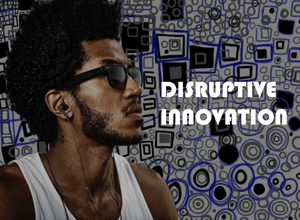 Seasoned music and film executive producer Helen Gammons runs the highly acclaimed MBA programme for the music and creative industries at Henley Business School.
Seasoned music and film executive producer Helen Gammons runs the highly acclaimed MBA programme for the music and creative industries at Henley Business School.
Now in its third year, its graduates are living proof that the sector is one that’s in a constant state of re-invention and change – perhaps more than any other.
“The industry is completely different to what it used to be and this has opened the door to a much wider range of opportunities for disruptive brands,” explains Helen Gammons who can lay claim to having attracted some of the best in the industry to the MBA programme including Faber Music, Disney, Sony Music, Peermusic and ISM to name a few.
The sector is almost unrecognisable to the one Gammons joined back in the ‘70s. Today, there are fewer players, a completely different set of income streams, many new business models and an extraordinary level of influence from outside the traditional sector that is forcing the sector to manage for disruptive innovation.
On Tuesday 24 February 2015 Henley Business School throws its doors open to those who want to learn how to compete and win in the face of disruptive innovation with a line-up of leading players from the music and creative industries sector: Professor George Tovstiga; Keith Jopling, Senior VP KAE; Mark Popkiewicz, CEO, Mirriad; Will Page, Chief Economist, Spotify; Simon Presswell, Music & Entertainment Entrepreneur and Ben Drury, Chief Strategy Officer at 7 Digital.
The one-day event is part of Henley’s ‘Creative Dynamics’ programme and is an ideal meeting place for those looking for inspiration and all-important industry contacts!
To date, subjects covered by the Creative Dynamics programme has included the future of music and brand partnerships; leadership and strategy in the digital economy; building business performance through managing creativity; opportunities for using branded content and marketing with bytes
“The music and creative industries have experienced the ‘perfect storm’ of disruptive forces including digital technology and generational changes in consumption. It’s been open season for market entrants – legal or illegal. But, disruption is transforming the entire creative industries sector, on a global scale – new platforms, business models and access to data bring constant change so it’s a case of either embrace change or die,” warns Gammons.
The programme is already shaping thinking not just here in the UK but as far as South Africa and there are plans to export the know-how and expertise to entrepreneurs in China over the next few years.
According to Keith Jopling, one of the ‘Creative Dynamics’ sponsors, the success of Spotify has turned traditional thinking on music rights on its head and has opened the way for new and disruptive models to take root in established and emerging markets. But perhaps what wasn’t predicted is that ‘old school’ brands have caught up with the challenger brands in this global market.
“Spotify succeeded in a business with notoriously high barriers to entry and with a model that few consumers had yet to adopt. However today the ground is moving beneath its feet and those brand owners seeking to knock it off its perch include Apple, Google and Amazon. Since 2009, Spotify has grown to become the biggest streaming music service in the world but is its planned IPO under threat unless it can respond to these new challenges from much bigger competitors?” asks Keith Jopling.
The one-day event Managing for Disruptive Innovation will reveal how Spotfiy intendes to stay on course.
“Challenger brands like Spotify can become incumbent in a competitive market in a relatively short space of time. They have thought differently about customer needs, rather than just replicating a previous business model and doing it a little better or more quickly. They’ve completely re-designed the market based on that customer insight and haven’t been afraid to step out of the mould of their industry.
“At the same time, they can’t afford to stand still. Our research here at Henley Business School demonstrates that disruptive brands need to be agile and forward thinking in order to maintain momentum. There are as many ‘also run’ fads as there are enduring game changers – and the skill is to recognise those models that have genuine capacity for building long-term value,” concludes Helen Gammons.














Recent Comments